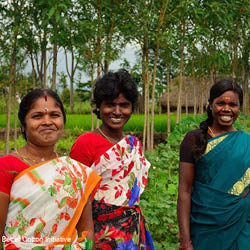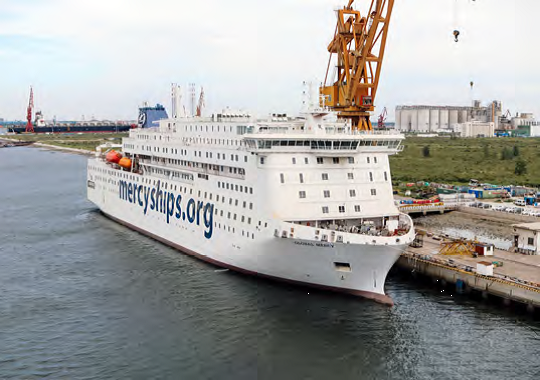We use cookies to make your experience better. To comply with the new e-Privacy directive, we need to ask for your consent to set the cookies. Learn more.

People
In respect to the second P of People, Bedding House has supported various projects in the countries where cotton has been produced for quite some time now. We also support the women and children involved in the production of cotton.
It is also the policy of the BCI to support male/female emancipation and the education of women and children. The support of women in cotton production has a multitude of effects; it strengthens their selfconfidence and their position within their families and the community. As women generally spend 90% of their income on their families, this will help families save for health care and child education. BCI is currently collaborating with 40,560 female farmers worldwide.
However, if is often the case that female workers in the cotton industry are less skilled (seasonal or part-time workers), which gives them less job security than men. Female workers worldwide are more likely to receive lower wages and (on average) be paid 25% to 30% less than men for exactly the same work. In collaboration with a local partner in Afghanistan, BCI supports projects where women receive guidance on how to run their own cotton farms independently.
No child labour
Bedding House is against any type of child labor. We visit our factories on a regular basis to see this with our own eyes. And also our Bedding House employees regularly check this no children work on the production of our bed textiles.

Story from the field
In Pakistan, approximately 1.5 million smallholder farmers rely on cotton for a living. However, the future of Pakistan’s cotton production will depend on men and women playing an equal role in fighting climate change and promoting sustainable farming practices. Female cotton farmers can set a powerful example in their communities. In rural Pakistan, this means overcoming entrenched attitudes towards the roles of men and women in the home and in the field. BCI’s six Implementing Partners (IPs) in Pakistan are helping to empower women to take on greater responsibility in the fields, and even to become independent farmers.
In the Vehari district of Punjab, BCI’s IP the Rural Education Economic and Education Development Society (REEDS) helped Almas Parveen, an ambitious, capable young 27-year-old woman. Almas’s family has been running a nine-hectare farm since 2009. Instead of deferring the management to a third party male farmer, Almas was determined to run the farm herself, cultivate healthy crops, and produce the best possible yields to sustain her family. Almas’ farm was too small to qualify for REEDS’ BCI program, which initially focused on mediumsized farms, but she was still offered the opportunity to join its BCI training sessions and learn sustainable farming techniques. With support from REEDS, Almas completed the training and qualified to become a Field Facilitator and began a paid position training local BCI Farmers in March 2017.
Almas’ transition to a position of responsibility in her community did not run smoothly. She experienced opposition from community members who did not approve of a young woman working on her own and providing training to male farmers. The farmers too were wary of Almas and questioned her right to train them. But Almas stood strong. In time, the farmers’ perceptions changed as her technical knowledge and sound advice resulted in tangible benefits on their farms. Anger turned into appreciation. She had won the community’s respect.
Today, Almas trains 400 BCI farmers, as well as supporting other cotton farmers outside of the BCI program. Almas raised yields and profits by 18% and 23% respectively on her own farm in 2017-18 (compared to 2016-17), and achieved a 35% reduction in pesticide use. With the additional profit, she has been able to support her family and pay for her brother’s wedding. Importantly, Almas also wants to make a difference in her community, acting as a role model for female farmers and encouraging more girls and women into cotton farming.
Mercy Ships
Bedding House is supporting Mercy Ships since 2019. Mercy Ships is an international organisation providing free medical care in developing countries on board of the largest non-governmental hospital ships of the world. Ou sponcorship consists of providing bed textiles for the hundreds of hospital beds on the ship.

